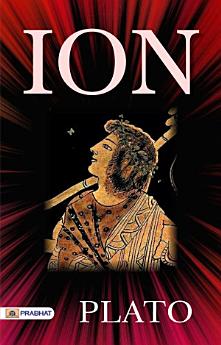Ion: Ion: Exploring Art, Rhetoric, and Knowledge by Plato
About this ebook
***** story portrays Eka's encounters with mythological beings, immortal characters (Chiranjeevis), and historic figures, painting a powerful picture of the trials and tribulations of living forever. Eka's journey invites readers to contemplate the profound idea that one can either die a hero or live long enough to see themselves become a villain. Through his eternal struggles, the book explores the challenges of immortality, showing how time, even for the eternal, leads to moral and emotional changes. Yet, amidst all the tumult, one thing remains unchanged: Sanatan, the eternal truth, unaltered by time's passage.
***** Then, Now, Forever" challenges the reader to reflect on the nature of life, death, and immortality, highlighting how everything around us changes, yet the core truth remains constant, unbroken, and eternal. This gripping story is an exploration of what it means to live forever, to witness the endless cycle of life, and to come to terms with the reality that nothing, not even immortality, is immune to change.
***** “A masterful blend of myth, history, and philosophy. Polisetti has created a rich, complex narrative that resonates with readers interested in exploring the nature of immortality and the human condition. The story of Eka’s journey is both epic and deeply personal, making this book a must-read for those fascinated by Indian epics and timeless truths.”
***** “An ambitious and intriguing tale that brings together mythology and history in a captivating way. The concept of immortality and the moral dilemmas it brings is explored deeply, although at times the pacing can feel slow. Still, a powerful read for those who enjoy mythological fiction with philosophical depth.”
***** “A unique take on immortality and mythological storytelling. The fusion of historical events and mythic themes is impressive, though some of the transitions between time periods felt abrupt. The book provides a profound reflection on the unchanging nature of truth and the trials of eternal life.”
***** “An interesting read that mixes Hindu mythology with historical events. While the premise of immortality and the philosophical ideas are compelling, I felt that some parts of the narrative could have been more tightly edited for a smoother reading experience. Nonetheless, the book offers great depth and insight into the human experience.”
***** “Polisetti’s storytelling is exceptional. This is an epic journey through time, filled with rich mythological references and thought-provoking reflections on life and immortality.
***** Then, Now, Forever is a book that lingers in your mind long after you’ve finished reading. A brilliant exploration of the eternal truths that bind humanity through time.”







